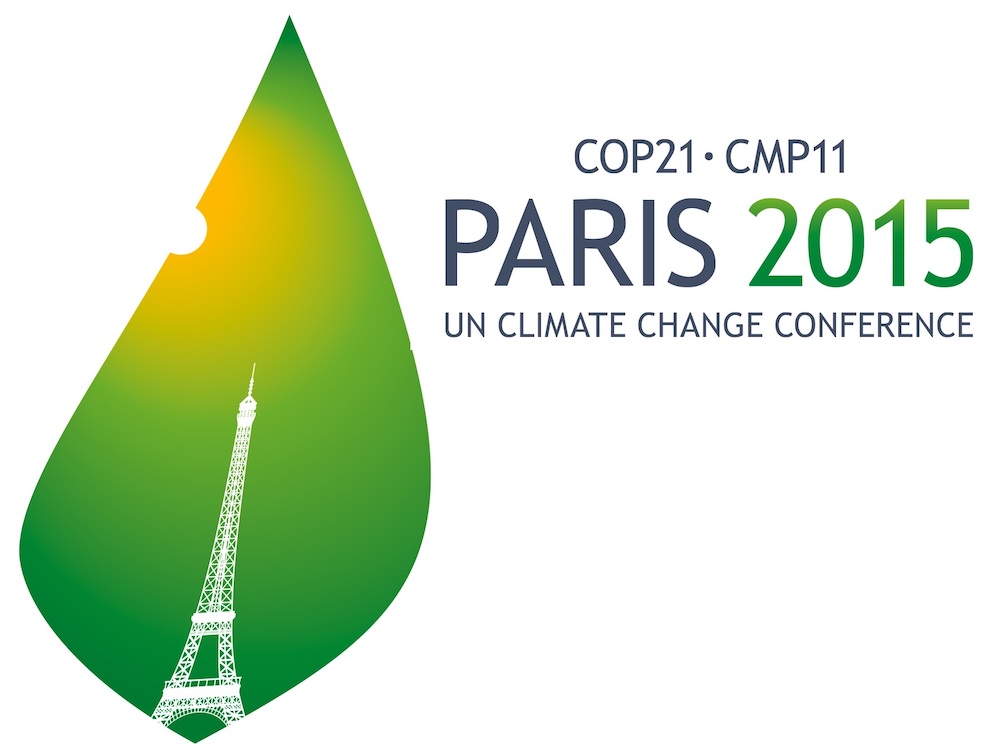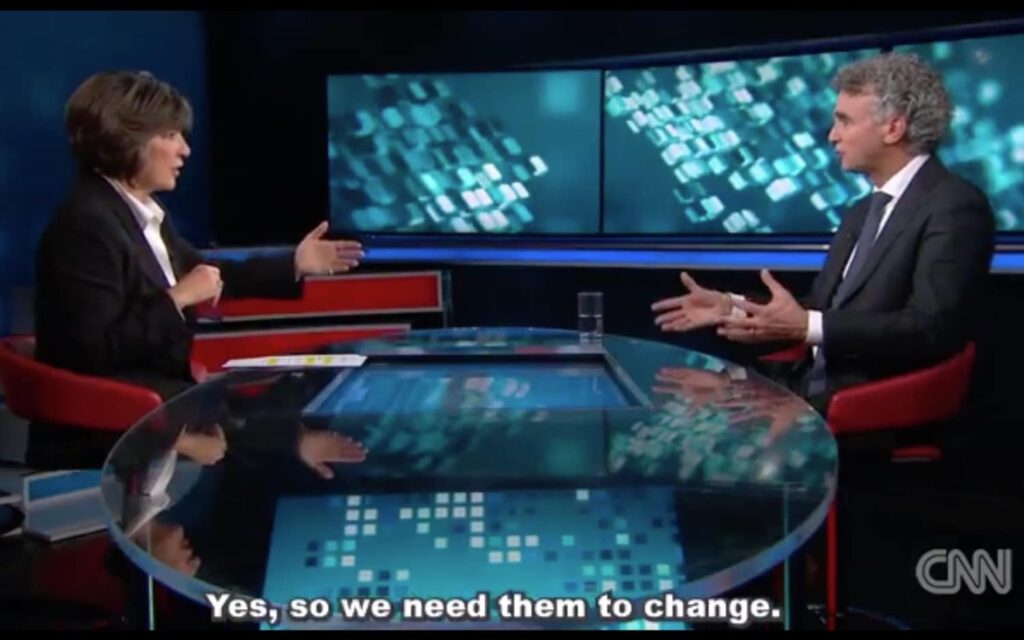
Big Oil resists change, despite the urgent climate crisis. They seem unwilling to shift business models. Yet, we have a powerful solution: shareholder activism.
Follow This, an Amsterdam-based non-profit with thousands of members, empowers shareholders to drive change from within. We believe shareholders, who ultimately decide a company’s direction, can drive these giants to change.
By filing resolutions at Annual General Meetings, we put climate action directly on the ballot, compelling even the largest polluters to adapt. It’s a direct path to securing a livable future.
It’s 2002, and Mark van Baal is traveling throughout Europe selling refrigeration machines for shipping containers. He was fed up with not doing something socially responsible.
He decided to become a journalist. After a decade of writing, he realized oil giants like Shell rarely listen to journalists, activists, or even governments.
Van Baal’s epiphany, fueled by Al Gore’s An Inconvenient Truth, highlighted a crucial leverage point: shareholders. He understood that the fossil fuel industry must transform, recognizing renewable energy as a key opportunity for their survival.
Only those with a financial stake can truly influence corporate direction. This insight underpins Follow This’s strategy: empowering shareholders to compel the biggest polluters toward a sustainable future.

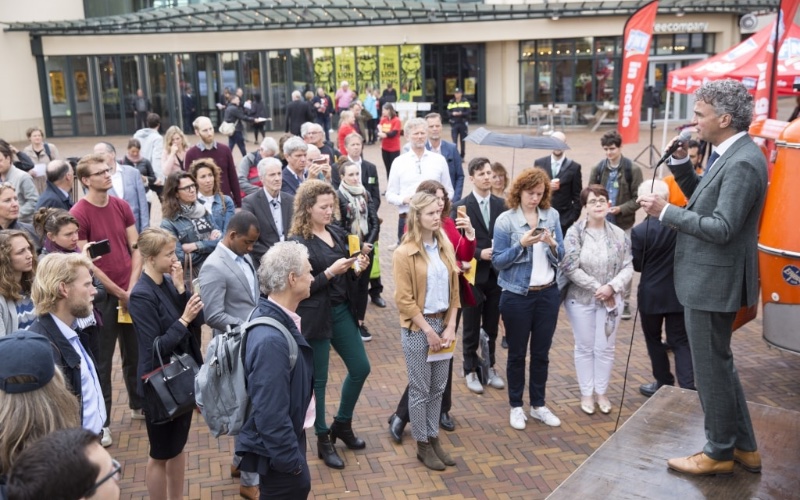
Van Baal saw that in order to change Shell, he would have to become a shareholder.
“I knew that one small shareholder can change the course of a company,” he says. The thinking was, if you can buy enough shares to submit a resolution to the shareholders’ meeting, then I will only have to convince the other shareholders. He called his idea Follow This.
The idea quickly took shape. Submitting a resolution requires at least 5 million euros in shares, so in 2015 he united big and large shareholders, convincing large shareholders to contribute and putting up a website where anyone could buy a share for about thirty euros.
But it didn’t go all that quickly. “The first months were really difficult,” he relates. “How often have I heard people say, ‘Oh, you want to change Shell. That’s a noble cause.’ They didn’t believe that we would actually succeed.
In this video, you see a young guy dancing in a park for several minutes all by himself. After a while a couple of others join him – the first followers – and then it takes off and a whole crowd joins in. “When I decided that I wanted to change Shell my wife showed me the video clip, and said, ‘That’s what you are going to do.’ And she was right.”
Eventually, more and more people got in touch and wanted to help with the mission of Follow This. The team of volunteers supporting Follow This grew larger and larger. “I am impressed every day by the drive and the brainpower of our young team members: students and recent graduates who are looking for work with a purpose.”

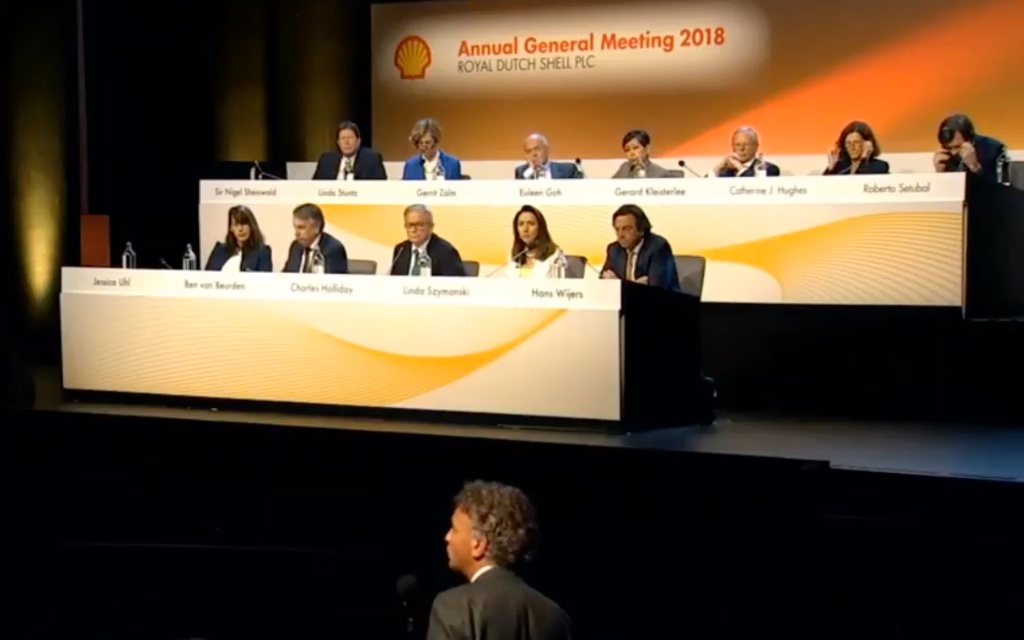
So Follow This finally pulled together enough money to submit a resolution for the first time at the 2016 shareholders’ meeting. Shell’s CEO, Ben van Beurden, appealed to his shareholders to vote against the resolution; nevertheless, 3% voted for it and another 3% withheld from voting.
In 2017 things went better. Follow This submitted another resolution, this time asking Shell to align its emission targets with the Paris climate agreement. Shell directors call this proposal a ‘fundamental misunderstanding’ and ‘unreasonable’, but 6% of shareholders voted in favour of it, double that of 2016. Thanks to the support of large institutional shareholders such as Actiam, Van Lanschot Kempen, MN, The Blue Sky Group, and the Church of England, Shell now has to listen to its shareholders.
Shell reacted half a year later by announcing a ‘climate ambition’ as the first oil company in the world to do so.
In 2018, Follow This filed at Shell again, and this time the company considered it ‘unnecessary’ to accept the resolution of Follow This, as can be seen in a heated altercation between Van Baal and Shell’s CEO, Ben van Beurden. And yet, nine of the ten biggest Dutch investors turned a blind eye to Van Beurden’s appeal. “Of the shareholders voting, 5.5% voted for the resolution and 7% abstained, which means that nearly 13% no longer support the Shell board,” says Van Baal.
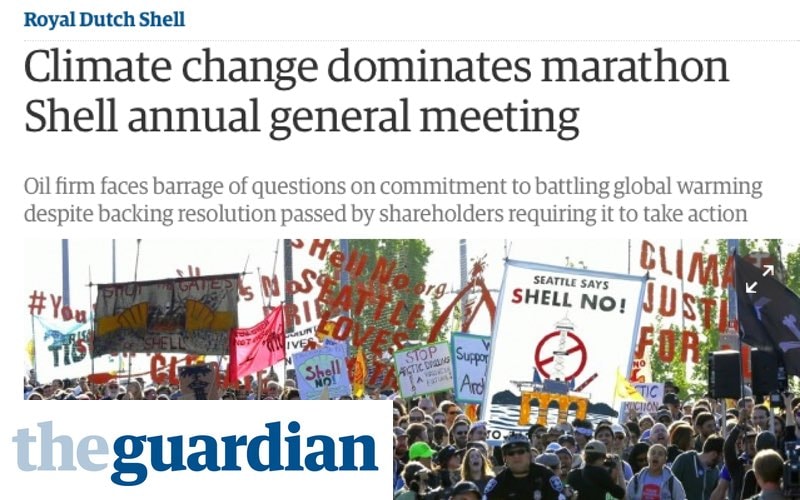

It takes guts to tackle one of the biggest companies in the world alone.
But it turns out that it is in fact working. Follow This now has a committed team and a growing group of 5,000 responsible shareholders, and is well-known amongst all major European oil majors, investors, and international media.
Shell’s climate ambition does not yet go far enough. “According to this ambition, Shell will halve its carbon footprint by 2050. But a relative reduction of 50% (an absolute reduction of 30%, because energy demand will grow) is not nearly enough to achieve the goals of the Paris climate agreement.”
“The entire industry will have to come around. Oil and gas companies will only survive if they become more sustainable, and without them we will never be able to achieve the Paris climate goals. If that happens, we will all be in much more danger. And it is not just our investments that are endangered, but our safety.”
In the coming years we will find out whether halting climate change will even be possible. But one thing is certain: If we let the oil industry have their way for another five years, we don’t have a chance.
